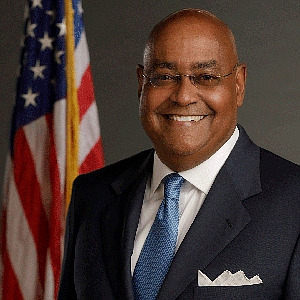6/5/2023

Harris County Commissioner Rodney Ellis and County Judge Lina Hidalgo will announce the ARPA-funded Uplift Harris, a $20.5 million program that’s part of Harris County’s broader strategy to address the region’s economic inequality and reduce poverty. The family financial stability and income program – a first of its kind for a Texas county -- will provide low-income families with direct, unconditional financial support to meet their basic needs like rent, groceries, transportation, housing and utilities cost, and care.
The announcement will be made Monday, June 5, at 1:15 p.m. at the Harris County Commissioners Court Chambers. In attendance will be Commissioner Rodney Ellis, County Judge Lina Hidalgo, and Barbie Robinson, Harris County Public Health Executive Director.
Harris County Commissioner Rodney Ellis and County Judge Lina Hidalgo on Monday, June 5 will introduce the Uplift Harris program, a $20.5 million investment that will provide low-income families with financial support for basic needs like rent, groceries, transportation, housing, utilities and care.
“Decades of neglect, inequity, and discrimination have financially destabilized generations of Harris County families, perpetuated poverty, and created unfair barriers to prosperity,” Commissioner Ellis said.
“Unchecked and ongoing inequality has created an economic divide that families can’t overcome on their own, and Harris County has an obligation to act.”
The 42nd annual Rice University’s Kinder Institute for Urban Research Houston Area Survey recently released its 2023 report, which found economic inequality is a growing concern and that 72% of respondents support more government action to reduce income differences between the rich and poor. Of the Houston-area residents surveyed, 63% also felt that “too little is being spent on programs and services to support individuals and families experiencing poverty.”
Uplift Harris, the first of its kind for a Texas county, was spearheaded by Commissioner Ellis’ Office and will be voted on by Commissioners Court on Tuesday. The program, funded by American Rescue Plan Act (ARPA) funds, is part of the county’s broader strategy to reduce poverty and deliver economic prosperity for everyone in Harris County.
Under the program, up to 1,500 families living below 200% of the federal poverty line – approximately $40,000 for a family of four – will receive $500 per month to support their household needs. Uplift Harris will run for 18 months beginning this fall. It will be administered by a third-party agency and subjected to rigorous evaluation.
Families randomly selected for the pilot program will either live in targeted high-poverty ZIP Codes or participate in Harris County Public Health’s ACCESS (Accessing Coordinated Care and Empowering Self Sufficiency) Harris County, a program to improve the lives of residents who are experiencing hardship and facing health challenges, financial and housing needs, and social inequity.
Harris County is one of the most economically segregated regions in the country with widening income and wealth disparities that disproportionately impact people of color, women, working families and youth.
The pandemic, soaring costs of living, and stagnant wages have deepened the economic divide, putting more strain on families struggling to make ends meet and threatening the region’s overall social well-being and economic stability.
“Similar programs in other cities and counties have been shown to increase employment and the incentive to work while reducing poverty,” Commissioner Ellis said. “But the benefits go even further. Families report improvements to their physical and mental health and are able to spend more time with their children. They also have a greater sense of self-determination when they are trusted with the resources they need to build a better life.”
For more information, see the attached background document and visit this website: https://countiesforaguaranteedincome.org/.
Additional Background
Guaranteed income was first proposed in the 1960s by civil right leaders like the Rev. Dr. Martin Luther King Jr. In recent years, and in the wake of the pandemic, over 45 cities and a handful of counties – including Cook County, Ill., and Los Angeles County, Calif., -- have piloted guaranteed income programs with positive results. Careful evaluation of guaranteed income programs shows that they:
Increase full-time employment and financial stability for participants[1].. [2]
Improve food security and housing stability.[3]
Allow parents more time with their children, increasing their child’s development, test scores, and parent-child relations.[4]
Improve physical and mental health, including less stress and anxiety, and overall well-being.[5]
